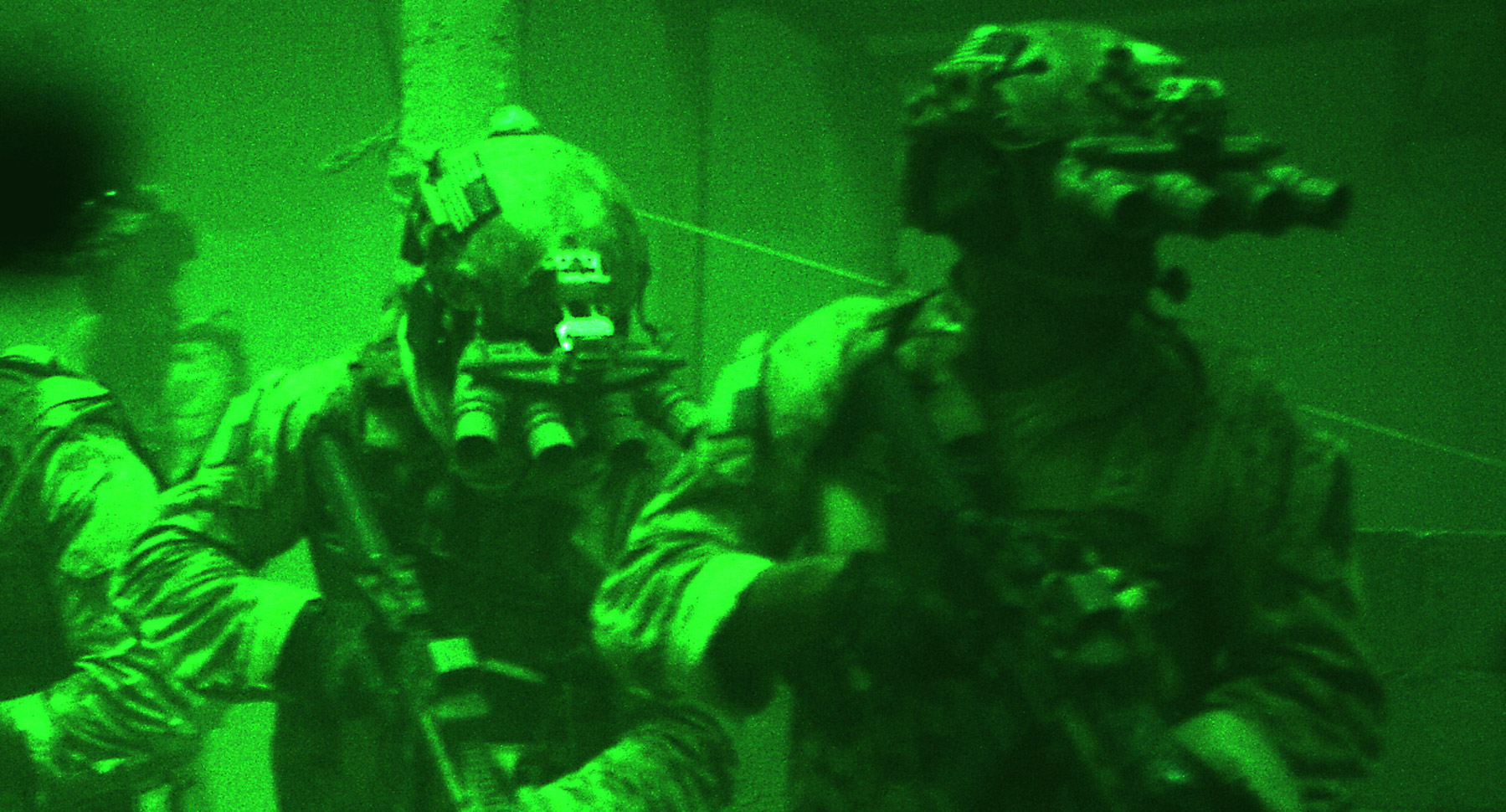Elite Special Operations forces across the planet have several shared core functionalities (missions).
Though there will always be healthy discussions about who does what better we can all agree that each special unit brings a unique approach and level of talent and resources to each mission.
Over the past decade the men and women of Naval Special Warfare have stood out as some of the finest as they’ve executed some of the highest profile strategic missions around the world.
So that we all might have a better understanding of what SEALs do, here are some brief descriptions of some of the missions of Naval Special Warfare.
DIRECT ACTION
LIGHTNING FAST SURGICAL PRECISION
Direct Action missions are quick “SWAT” like assaults used to rescue hostages, seize oil platforms, over take ships, or destroy a targets. Often the enemy will have little to no warning of the attack.
While executing unique Direct Action missions taking down ships in the Gulf it was common that we would have the ship under our complete control before many of the crew even knew we were aboard.
Direct action missions can be the result of extensive intelligence work and planning. Some missions, such as the elimination of Osama Bin Laden, can take years to plan and several more weeks to rehearse.
Clad in black hoods and night vision goggles SEAL platoons quickly and quietly subdue their enemy. If and when contact is made these well rehearsed missions can quickly turn into an explosion of aggression.
COUNTER TERRORISM
BRINGING THE FIGHT TO THE ENEMY
The counter terrorism mission is all inclusive combining all assets and capabilities of Naval Special Warfare and other government agencies (OGAs).
SEAL Platoons are deployed throughout the world supporting the Global War On Terror (GOTWA). Working to develop intelligence assets in efforts to identify and thwart attacks before they happen takes up a bulk of our resources.
Once targets are identified a SEAL team may be tasked with surveilling it, capturing it or, if necessary, eliminating it.
The counter terrorism mission has been going on for well over 30 years and will probably remain a central focus for years to come as pockets of power struggles continue to evolve.
FOREIGN INTERNAL DEFENSE
HOMEGROWN HELP
During World War II, the Office of Strategic Services was known for sending in highly trained and highly motivated operatives to recruit, train and lead “guerrilla” groups. Foreign internal defense is similar in nature as its purpose is to enable others to protect and defend their own nation. Where FID is different from guerrilla warfare is that it’s generally sponsored by a recognized host nation and done in the open.
Foreign internal defense (FID) missions can include training in weapons, demolitions, reconnaissance, surveillance, diving or parachuting. In special circumstances intelligence collection and tradecraft may included as well. There is really no limit to what we can arm another nation to do.
As a young SEAL these were not my favorite missions to conduct. You always had that nagging feeling that you might be training someone you could be fighting in the near future.
As I matured as an operator I began to see these missions as an opportunity to build relationships and knock down geographic and cultural barriers. I realized that the men we were training were also just trying to do their best to survive and thrive just like the rest of us.
SPECIAL RECONNAISSANCE
SNEAKING AND PEAKING
Special Reconnaissance (SR) missions send SEALs behind enemy lines to observe and report on enemy size, activity, location, uniforms, time and equipment (SALUTE).
In modern day warfare these missions can vary significantly taking on multiple forms. These mission may be conducted in urban areas while wearing civilian clothes where the operatives will be required to blend into local populations, as well as build observation hides in hotel rooms and vehicles. Or this type of mission can be conducted wearing a Snipers Ghillie suit while hiding in a bush.
Regardless of the environment these missions will have a heavy focus on camouflage and concealment as well as high and low tech means of capturing information. SEAL Reconnaissance operatives become experts in digital photography, sketching, physical surveillance and technical surveillance as well as observation and reporting.
Prior to just about any missions or troop movement Special Reconnaissance is conducted to identify enemy movement, threats and even road conditions.
UNCONVENTIONAL WARFARE
WINNING THE HEARTS AND MINDS WHILE STRENGTHENING THE FISTS
Unconventional Warfare (UW) has been a specialty of the U.S Army’s Green Berets for a very long time and it has been adopted by the SEAL teams as well.
Its purpose is to prepare the battlefield for follow on special operations missions and the occupation of conventional forces. A UW mission can last for months and often years as specially trained SEALs gain access to typically denied areas by building relationships through shared objectives, training and time spent together.
Much like a FID mission UW missions, also known as guerrilla warfare, are typically centered on the training and enabling of foreign forces. UW becomes very different than FID because it is executed under covert or clandestine conditions and it’s typically more aggressive in its nature and its purpose.
UW missions are essential for collecting valuable intelligence that often prevents nasty attacks as well as enables extremely effective offensive strategies. UW units are known to train and enable guerrilla forces in sabotage, intelligence operations, recovery operations and even direct action.
The above missions represent the “Core” capabilities of a SEAL team, but do not represent everything a SEAL can do. Dynamic and innovative these guys can “morph” into anything they need to get the job done.
